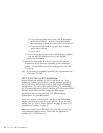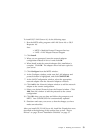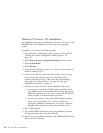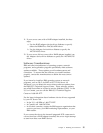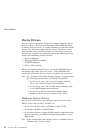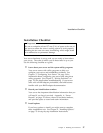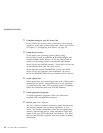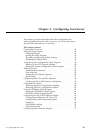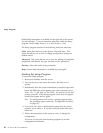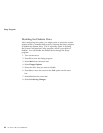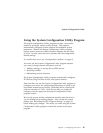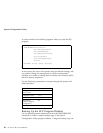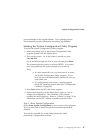Configuration
Configuration Overview
You play a key role in how your server allocates resources to
organize and interconnect hardware devices and software programs.
This allocation process is referred to as configuration. The steps
required to configure your server depend on the number and
variety of devices and programs that you install.
Your server has the flexibility and power to support several types of
adapters. This flexibility lets you choose from among thousands of
adapters and devices that comply with any of the following
standards:
Peripheral Component Interconnect (PCI)
Extended Industry Standard Architecture (EISA)
Industry Standard Architecture (ISA)
SCSI-2 (SCSI)
In general, the greater the number and variety of hardware devices
and software programs you install in your server, the more you will
have to interact with your server and your devices to correctly
configure your system.
Several hardware configuration utility programs come with your
server. Use the built-in Setup program to define the system date
and time, and control access to the diskette drive.
The System Configuration Utility (SCU) program is your main tool
to configure the system. Use it to define most configuration
settings. The values that you enter in the System Configuration
Utility program override the entries in the Setup program.
See “Using the SCSISelect Utility Program” on page 64 and the SCSI
Software User's Guide for information on using the SCSI-2 utility
programs to configure the SCSI devices that you attach to the SCSI
controllers on the system board.
Configuration switches and jumpers reside on the system board.
The switches enable you to define some configuration settings.
40 PC Server 704 User's Handbook



